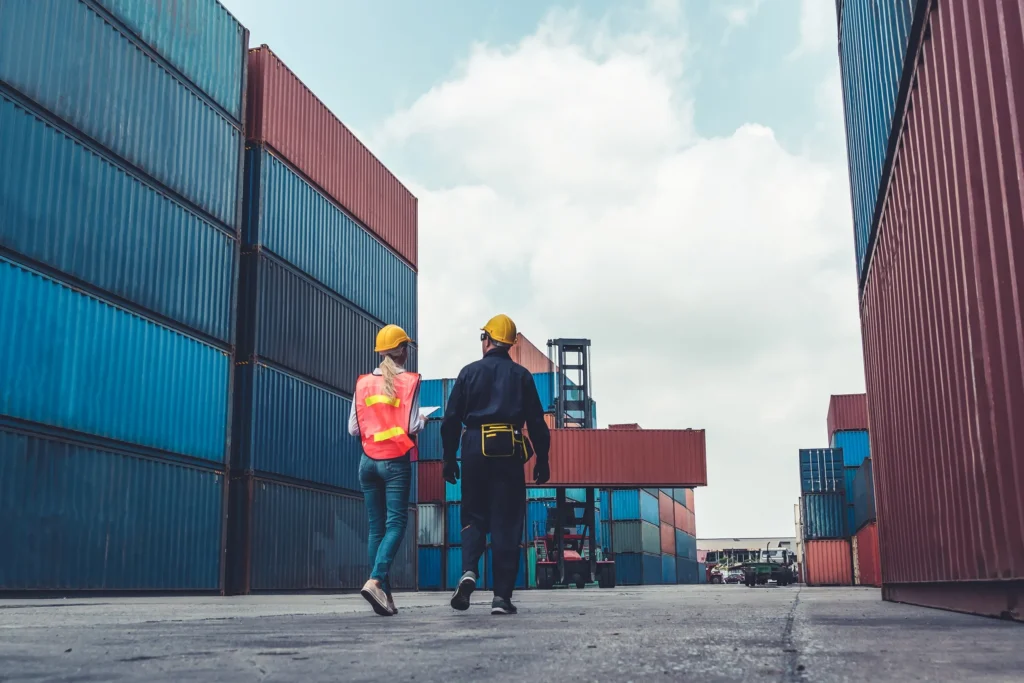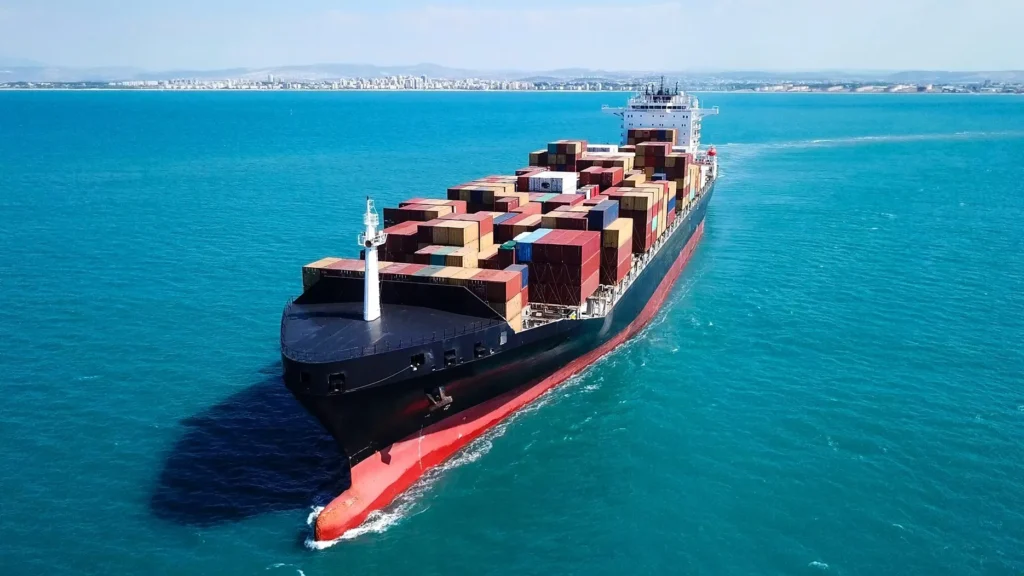
If you’ve suffered an injury while working offshore or in the maritime industry, you need a legal team that understands the complexities of maritime law and is dedicated to fighting for your rights. At Big River Trial Attorneys, we bring knowledge and a proven track record to the table, ensuring that your case is handled with the care and attention it deserves. Our team of seasoned attorneys has extensive experience in maritime law and is committed to providing you with the highest level of representation. We understand that maritime injuries can be life-altering, and we are here to support you every step of the way, from initial consultation to the final resolution of your case.
Don’t let an accident at sea determine your future. Call us now at 225-725-6000 for a free consultation and let us help you through the legal waters toward the compensation you are entitled to.
Understanding Maritime Law and Your Rights
Maritime law, governing waters from oceans to rivers, is a unique legal territory that extends special protections to offshore and maritime workers. These laws are intricate, requiring focused knowledge for effective representation. From seamen to longshoremen, every maritime worker has certain rights under various laws, providing specific paths to seek compensation for injuries.
In the maritime industry, negligence and unsafe practices are frequent contributors to accidents, often exacerbated by factors such as fatigue and lack of training. This makes it crucial for maritime workers to understand their rights and seek the help of experienced maritime accident lawyers when injured on the job.
But what specific laws protect maritime workers? The answer lies in three primary laws – the Jones Act, the Longshore and Harbor Workers’ Compensation Act (LHWCA), and the Death on the High Seas Act (DOHSA). Knowing these laws is the first step towards taking legal action when faced with a maritime accident.
The Jones Act and Seaman Status
The Jones Act is a federal law that provides seamen with the right to sue their employers for personal injury damages. But who qualifies as a seaman under this Act? A seaman is defined as a person who spends a significant part of their employment, generally more than 30%, working as a crew member or captain on a vessel that is ‘in navigation’.
This definition means that the ship or boat must be afloat, in operation, capable of moving, on navigable waters, and not dry docked.
Moreover, the work performed by the individual on the vessel must contribute to the vessel’s function or mission. Unlike general negligence claims, the Jones Act demands a lower burden of proof, requiring the employer’s actions to be a contributing cause of the injury, not necessarily the most likely cause.
Longshore and Harbor Workers’ Compensation Act (LHWCA) Coverage
 The LHWCA is a unique form of workers’ compensation specifically for maritime employees, including longshoremen, harbor workers, and workers on docks, shipping terminals, or shipyards. This Act extends coverage to workers involved in loading and unloading vessels, ship repairmen, shipbuilders, truck drivers responsible for shipping containers, and the mechanics who repair those trucks. However, certain workers such as recreational shipbuilders, recreational ship mechanics, general marina workers, fishermen, and those covered under the Jones Act are specifically excluded.
The LHWCA is a unique form of workers’ compensation specifically for maritime employees, including longshoremen, harbor workers, and workers on docks, shipping terminals, or shipyards. This Act extends coverage to workers involved in loading and unloading vessels, ship repairmen, shipbuilders, truck drivers responsible for shipping containers, and the mechanics who repair those trucks. However, certain workers such as recreational shipbuilders, recreational ship mechanics, general marina workers, fishermen, and those covered under the Jones Act are specifically excluded.
Injured employees eligible under the LHWCA could be entitled to:
- Receive a portion of their wages based on the severity of their injuries
- Have all reasonable and necessary medical treatments paid for
- Reimbursement for mileage and other transportation expenses related to medical visits.
Death on the High Seas Act (DOHSA) Claims
The DOHSA is a federal law that allows family members of a seaman killed more than three nautical miles off the US coast to make a damages claim against the vessel’s owner. The surviving spouse, children, parents, or dependent siblings have the right to bring a claim under DOHSA.
The deadline for filing a DOHSA claim is typically three years from the date of death, but this period may be reduced to one year if the decedent was a passenger on a cruise ship. Damages recoverable under DOHSA may include:
- Funeral expenses
- Medical expenses
- Loss of inheritance
- Loss of support
- Loss of services
- Loss of parental nurture
However, there’s no provision for pre-death pain, lost wages, mental pain, or loss of society.
Common Offshore Injuries and Accidents in Baton Rouge
 Offshore rigs, including oil rigs, and fishing boats in Baton Rouge are recognized as highly hazardous work environments, prone to various accidents, including Baton Rouge maritime accidents. Baton Rouge maritime industry, including offshore workers, face the risk of injury and death, as well as weather-related risks and unforeseeable hazards, adding to the dangerous nature of the job.
Offshore rigs, including oil rigs, and fishing boats in Baton Rouge are recognized as highly hazardous work environments, prone to various accidents, including Baton Rouge maritime accidents. Baton Rouge maritime industry, including offshore workers, face the risk of injury and death, as well as weather-related risks and unforeseeable hazards, adding to the dangerous nature of the job.
Safety is paramount in the offshore drilling industry, where challenging conditions necessitate stringent safety protocols and personal protective equipment to mitigate risks. Despite these measures, injuries from falls and incidents leading to severe harm, including catastrophic outcomes like paralysis and limb amputations, are common among Baton Rouge offshore workers.
A broad spectrum of maritime workers from seamen to mechanics, operators, divers, and more are susceptible to maritime injury from offshore accidents. All these workers are entitled to legal protections and may seek compensation under maritime law when they suffer injuries in the course of their employment.
Claims for Serious Injuries
Traumatic brain injuries are among the most severe outcomes of offshore accidents, requiring significant medical attention and rehabilitation. Due to the serious nature of these accidents, injured workers may face long-term or permanent disabilities that dramatically affect their lives and livelihoods.
Maneuvering the statute of limitations and other legal complexities for serious injuries demands timely filing of claims. Filing a claim for a serious injury, such as a traumatic brain injury, involves intricate steps, from gathering evidence to establishing the extent of the injury’s impact on the worker’s life. Complex cases are often contested by employers and insurance companies, making guidance and representation from skilled attorneys essential.
The Perils of Equipment Failure and Bad Weather
Unsafe practices, including poor maintenance of equipment and machinery, contribute significantly to maritime accidents. Negligence in equipment maintenance or carelessness on the water can lead to serious injury or even death.
The maritime industry operates in a dynamic environment with varying weather conditions. Extreme weather conditions can exacerbate the risks, leading to accidents that could otherwise have been avoided. Proper maintenance and adherence to safety protocols are crucial in these situations.
Seeking Financial Compensation After an Offshore Accident
If you’ve been injured in an offshore accident that wasn’t your fault, it’s time to contact Louisiana offshore accident attorneys to seek compensation. Seeking compensation is a complex process, and companies often prioritize their own interests over those of injured workers.
Yet, to establish a strong compensation claim, all damages like medical bills and lost wages must be thoroughly documented. Future expenses, including ongoing treatments and lost earning capacity, should also be included in the compensation claim.
Remember, if an offshore injury was caused by negligence, victims have the right to seek compensation. By retaining the services of maritime injury lawyers, you stand a better chance of obtaining the financial recompense deserved after being involved in a maritime accident.
Estimating Potential Compensation with Our Attorneys
At Big River Trial Attorneys, we can assist in providing a precise estimate of potential compensation based on your eligibility as an injured worker. We take into account all aspects of your situation, including the severity of your injuries, the impact on your ability to work, and the degree of negligence involved in your case.
Maximizing Your Claim Through Effective Legal Strategies
Maximizing your compensation claim requires a deep understanding of the legal landscape and skillful navigation of the various steps involved. It’s can be essential to:
- Assess the severity of injuries
- Evaluate economic losses
- Determine the responsible party’s negligence
- Establish a strong legal case
- Estimate potential compensation
Engaging legal professionals adept at dealing with maritime law complexities can significantly enhance your compensation amount, especially when dealing with insurance companies that often aim to minimize compensation. Prompt medical attention, hiring a personal injury lawyer promptly, and refraining from discussing the incident on social media are effective strategies for managing an offshore injury claim.
How Big River Trial Attorneys Can Help You
 At Big River Trial Attorneys, we’re committed to helping maritime workers in Baton Rouge understand their legal rights and seek justice. Remember, you’re not alone on this journey. We’re here to guide you every step of the way, ensuring your interests are protected and fighting for the compensation you deserve.
At Big River Trial Attorneys, we’re committed to helping maritime workers in Baton Rouge understand their legal rights and seek justice. Remember, you’re not alone on this journey. We’re here to guide you every step of the way, ensuring your interests are protected and fighting for the compensation you deserve.
From understanding your rights under various maritime laws to seeking financial compensation after an offshore accident, the importance of having an experienced maritime lawyer on your side is apparent.
We focus on more than just providing legal guidance. We aim to be a trusted advisor and a source of comfort throughout the legal process, understanding the unique challenges that maritime workers face.
Offshore accidents can turn your life upside down, but with our dedicated team on your side, you can rest assured that your case is in capable hands. Our commitment to our clients’ needs, combined with our deep understanding of maritime law, prepares us to fight for justice on your behalf. Don’t wait to get the representation you deserve. Call us today at 225-725-6000 to set up your free consultation.
Free Legal Consultation: Understanding Your Options
Free legal consultation is a vital first step in understanding your legal options and the validity of your case under maritime law. At Big River Trial Attorneys, we offer a no-obligation consultation, ensuring confidentiality and providing invaluable insights about your case.
Proven Track Record in Maritime and Offshore Accidents
Our proven track record speaks for itself. As an experienced maritime lawyer, we have consistently delivered successful outcomes in maritime and offshore accident cases, resulting in substantial compensation for our clients. Our positive outcomes in many Jones Act claims and endorsements from national legal publications highlight our commitment in maritime legal matters.
Frequently Asked Questions
What laws protect offshore and maritime workers?
Offshore and maritime workers are protected by laws such as the Jones Act, the Longshore and Harbor Workers’ Compensation Act (LHWCA), and the Death on the High Seas Act (DOHSA). These laws provide specific protections and compensation for workers in these industries.
Who qualifies as a seaman under the Jones Act?
To qualify as a seaman under the Jones Act, an individual must spend more than 30% of their time working as a crew member or captain on a vessel that is ‘in navigation’. This is a key requirement for eligibility under the Jones Act.
What benefits are provided under the LHWCA?
Under the LHWCA, injured employees are entitled to receive a percentage of their wages based on the severity of their injuries and all reasonable and necessary medical treatments, including transportation expenses related to medical visits.
What damages can be recovered under the DOHSA?
Under the Death on the High Seas Act (DOHSA), damages that can be recovered include funeral expenses, medical expenses, loss of inheritance, loss of support, loss of services, and parental nurture. However, there’s no provision for pre-death pain, lost wages, mental pain, or loss of society.
Can I sue for maritime injuries if I’m not a U.S. citizen?
Yes, non-U.S. citizens may still have the right to sue for maritime injuries under certain conditions. International maritime law, as well as specific U.S. laws like the Jones Act, may provide avenues for compensation. However, the details of your employment, the location of the injury, and the flag of the vessel on which you were working can all affect your rights. It’s important to consult with a maritime lawyer who can evaluate your situation and advise you on the best course of action.



